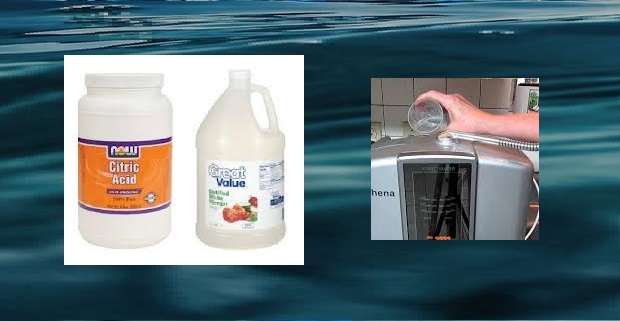Vinegar vs Citric Acid Wash: Which is Better to Clean Your Water Ionizer?
Published by Alkaline Water Plus
Water Ionizers: Vinegar & Citric Acid Washes
Water ionizers will generally last about 20 years if you take care of them properly. If you use hard water with a water ionizer for that many years, though, it’s likely that you’ll need to do at least a few vinegar or citric acid washes in that time. The point of a vinegar or citric acid wash is to remove the built-up scale inside the water lines of the water ionizer. Even with water ionizers that have continuous-cleaning inside the water cell there are other water lines that can get clogged up with scale and cause the water-flow to slow down over time. Over the years I’ve tested and found out the best methods of doing a vinegar wash [or citric acid wash]. You can see more about that on this page: Water Ionizer Use & Care
“What’s the difference between a vinegar wash and a citric acid wash?”
I’ve often wondered, which one is stronger, vinegar or citric acid? So, I conducted a test to find out. I conducted my experiments with eggs. Why use Eggs? Scale is basically hardened calcium deposits inside of water lines. You can’t see inside of water lines, though, so I decided to use egg shells. Egg shells are basically the same substance as scale [hardened calcium]. If you’re going to repeat my experiment for yourself, please make sure you hard-boil the eggs first, so as to not make a mess if they break.
Testing the Difference Between Citric-Acid and Vinegar
What I did to test the difference in strength and effectiveness [for removing scale] was to completely submerge and soak one of the hard-boiled eggs in vinegar and the other in citric acid and compared the results.
Here are the videos.
Results and Comments:
It turns out that, at least in this test, vinegar is the far stronger substance in removing scale or dissolving calcium.
So, does that mean you should do a vinegar-wash rather than a citric acid wash? Not necessarily. Some water ionizer manufacturers don’t sanction the use of vinegar or a vinegar-wash of their water ionizers. It has to do with how sturdy the padding between the plates inside the water cell is. You can read more about that here: Water Ionizer Use & Care



